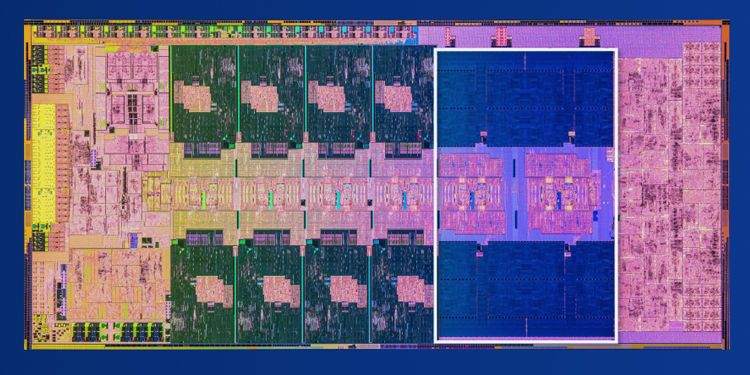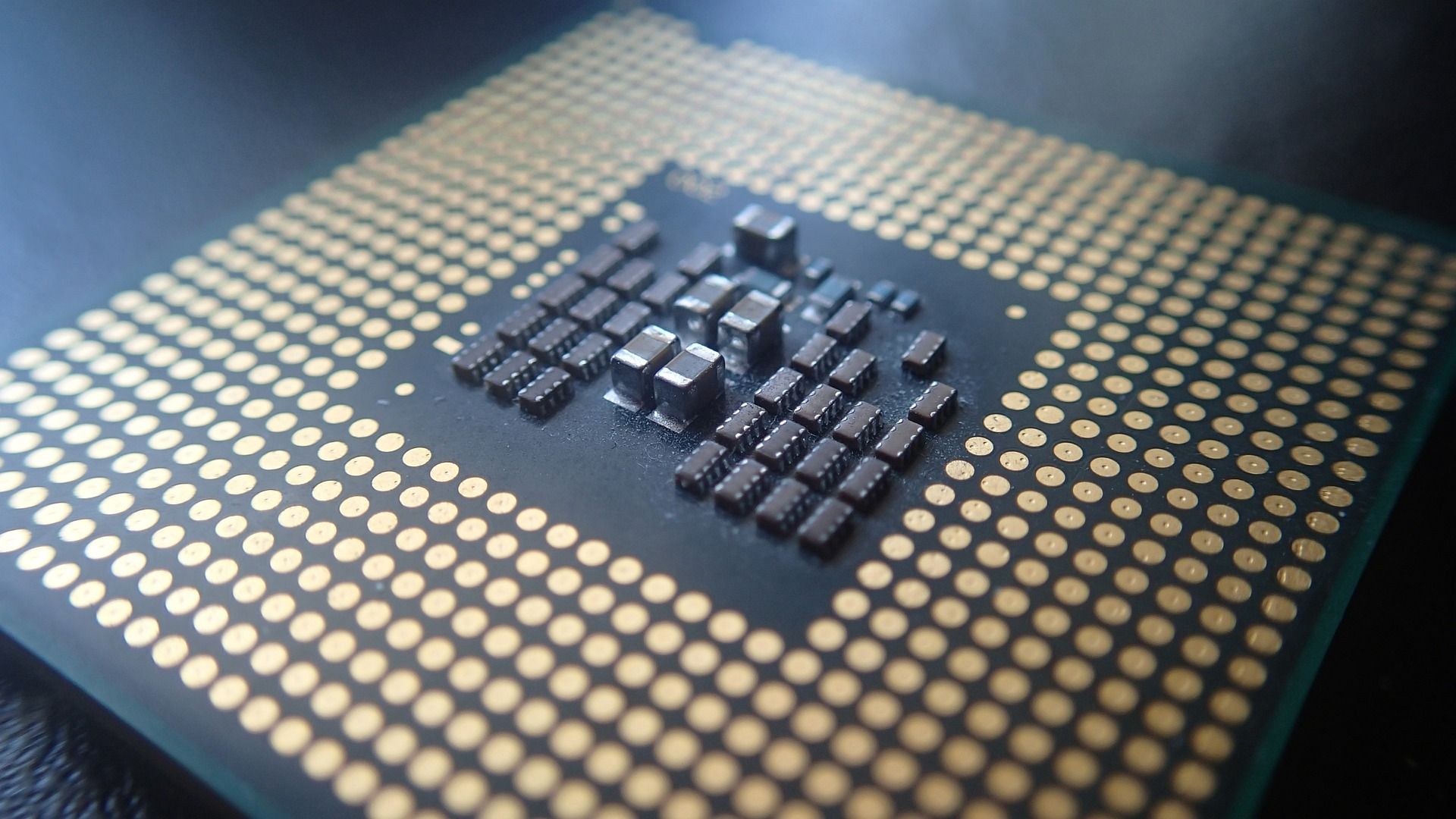
Steer Clear of Intel’s Latest Chips - 6 Key Concerns

Steer Clear of Intel’s Latest Chips - 6 Key Concerns
Disclaimer: This post includes affiliate links
If you click on a link and make a purchase, I may receive a commission at no extra cost to you.
Key Takeaways
- Intel’s 14th-Gen processors offer minimal upgrades over the 13th-Gen chips, especially in terms of core variants and memory speed.
- Both the 14th-Gen and 13th-Gen Intel processors have the same core count, with only the i7-14700K getting a bump in core count.
- The 14th-Gen Intel chips are built on the same architecture as the 13th-Gen, making them less of an improvement on the previous generation rather than a major game-changer in terms of power and efficiency.
Intel announced its 14th-Generation Intel Core processors—the latest addition to the Intel processor lineup on the 7nm Intel 4 process node. These chips are supposedly the best, most power-efficient Intel offers, but many are disappointed with its performance.
So, if you’re an Intel fan, here is why you should skip the 14th-Gen processors and perhaps wait for the 15th-Generation instead.
1. Intel’s 14th-Gen Brings Minimal Specification Upgrades Over 13th-Gen Chips
One of the reasons why you would upgrade to a processor is that it has a significant advantage over the one you have. However, if you have a 13th-Gen Intel processor or newer, the latest 14th-Gen chips do not offer a big advantage, especially if you stay in the same Core variant you currently have,like the Intel Core i5 or i7 .
Let’s compare the specifications from the latest three Intel Core i9 generations to see their differences.
| Processor | Intel Core i9-14900K | Intel Core i9-13900K | Intel Core i9-12900K |
|---|---|---|---|
| Max Turbo Frequency | 6.0 GHz | 6.0 GHz | 5.2 GHz |
| Processor Cores (P-Cores + E-Cores) | 24 (8P + 16E) | 24 (8P + 16E) | 16 (8P + 8E) |
| Total Processor Threads | 32 | 32 | 24 |
| Smart Cache (L3) | 36 MB | 36 MB | 30 MB |
| Max Memory Speed | DDR4-3200 DDR5-5600 | DDR4-3200 DDR5-4800 | DDR4-3200 DDR5-4800 |
| PCIe 5.0 Lanes | 16 | 16 | 16 |
| PCIe 4.0 Lanes | 4 | 4 | 4 |
| Integrated Graphics | Intel UHD 770 | Intel UHD 770 | Intel UHD 770 |
While Intel’s 14th-Gen has some advantage over the 12th-Generation chips in core counts and max frequency, its only advantage over the 13th-Gen is it’s slightly faster maximum memory speed with DDR5 RAM.
We can also check the differences between the more affordable Intel Core i5 Generations.
| Processor | Intel Core i5-14600K | Intel Core i5-13600K | Intel Core i5-12600K |
|---|---|---|---|
| Max Turbo Frequency | 5.3 GHz | 5.1 GHz | 4.9 GHz |
| Processor Cores (P-Cores + E-Cores) | 14 (6P + 8E) | 14 (6P + 8E) | 10 (6P + 4E) |
| Total Processor Threads | 20 | 20 | 16 |
| Smart Cache (L3) | 24 MB | 24 MB | 20 MB |
| Max Memory Speed | DDR4-3200 DDR5-5600 | DDR4-3200 DDR5-4800 | DDR4-3200 DDR5-4800 |
| PCIe 5.0 Lanes | 16 | 16 | 16 |
| PCIe 4.0 Lanes | 4 | 4 | 4 |
| Integrated Graphics | Intel UHD 770 | Intel UHD 730 | Intel UHD 730 |
Even the entry-level Core i5 processors have few changes over the 13th-Generation chips.
2. Intel’s 14th-Gen and 13th-Gen i9 and i5 Processors Have the Same Core Count

Image Credit:Intel
One of the ways you can measure performance improvements between generations of processor chips is by its core count. In general,the processor core is the part of your computer that reads and executes instructions.
So, the more cores you have, the faster your processor will run. This, in turn, will make your computer snappier unlessyou run into a bottleneck . Intel took this further byintegrating performance and efficiency cores into its chips to have a powerful but power-efficient processor.
However, if you look at our comparison charts above for the 13th-Gen and 14th-Gen chips, you’ll see that the i9 and i5 processors have the same number of cores. Only the Intel Core i7-14700K gets a core count bump from 16 (8P + 8E) to 20 cores (8P + 12E).
3. The 13th-Gen and 14th-Gen Intel Chips Use the Same Architecture

The processor architecture is how a CPU is built. Major architecture changes can be a game changer, making a processor more powerful and efficient. This is most apparent with the 12th-Gen Alder Lake processor when Intel introduced the performance and efficiency cores in its chips.
One of thethings you need to know about the 13th-Gen Raptor Lake processor is that it’s mostly an improvement over the 12th-Gen Alder Lake processors. But the 14th-Generation Intel chips are also an improvement built upon the Raptor Lake processor.
EvenIntel says this , as it called the 14th-Generation processors “Raptor Lake Refresh”. Nevertheless, let us see the results from various testers to see how the 14th-Gen Intel chips fare over other processors.
4. They Don’t Perform Much Better Than the 13th-Gen Intel Chips
Of course, no matter what a processor maker says, the best way to gauge a chip’s performance is to see its real-world results. So, this is how the 14th-Generation Intel processors performed over 13th-Gen Intel chips and from competing AMD offerings.
First, let’s look at Gamer Nexus’s test of the Intel Core i9-14900K, linked above. Gamer Nexus used a computer with the following specifications for the test: RTX 4090 Strix GPU and DDR5-6000 Corsair RAM.
| Intel Core i9-14900K | Intel Core i9-13900K | AMD Ryzen 9 7950X3D | |
|---|---|---|---|
| Productivity Testing | |||
| Blender 3.64 Rendering (seconds / lower is better) | 7.3 | 7.3 | 6.7 |
| 7-Zip Compression Test (millions of instructions per second / higher is better) | 190,613.3 | 189,432.5 | 194,953.5 |
| Adobe Premiere (Puget Suite aggregate score / higher is better) | 842 | 828 | 832 |
| Game Testing (Average FPS/Higher Is Better) | |||
| Rainbow Six Siege @ 1080p | 655.9 | 645.2 | 694.1 |
| Rainbow Six Siege @ 1440p | 511.2 | 511.0 | 520.0 |
| F1 2023 @ 1080p | 422.1 | 417.5 | 506.5 |
| F1 2023 @ 1440p | 392.8 | 389.5 | 400.1 |
| Baldur’s Gate 3 @ 1080p | 110.2 | 107.8 | 124.9 |
| Baldur’s Gate 3 @ 1440p | 107.6 | 106.0 | 121.7 |
| Final Fantasy XIV @ 1080p | 270.0 | 262.0 | 214.2 |
| Final Fantasy XIV @ 1440p | 269.0 | 261.8 | 212.6 |
| Starfield @ 1080p | 132.4 | 128.8 | 114.0 |
As you can see in the test results, the Intel i9-14900K performs a bit better than its previous-generation counterparts. However, in many tests, AMD’s Ryzen 9 7950X3D chip posted better results than Intel’s 13th-Gen and 14th-Gen offerings. Despite the 14900K boasting more cores and a higher boost clock speed,AMD 3D V-Cache helps the 7950X3D gain an advantage.
Let’s also look at Hardware Unboxed’s results (linked above) when it tested the i7-14700K against the competition. Hardware Unboxed used a PC equipped with an RTX 4090 Strix GPU and DDR5-6000/7200 RAM for this test for the AMD/Intel build.
| Intel Core i7-14700K | Intel Core i7-13700K | AMD Ryzen 7 7800X3D | |
|---|---|---|---|
| Productivity Testing | |||
| Cinebench 2024 Benchmark (Multi-Core / higher is better) | 1,982 | 1,665 | 1,124 |
| Cinebench 2024 Benchmark (Single-Core / higher is better) | 130 | 125 | 122 |
| Blender Open Data 3.1.0 (samples per minute / higher is better) | 235 | 190 | 135 |
| Adobe After Effects (Puget Systems benchmark / higher is better) | 1,455 | 1,412 | 1,251 |
| Game Testing (Average FPS/Higher Is Better) | |||
| Baldur’s Gate 3 @ 1080p | 153 | 148 | 178 |
| Hogwarts Legacy @ 1080p | 75 | 74 | 80 |
| Starfield @ 1080p | 105 | 97 | 91 |
| Cyberpunk 2077: Phantom Liberty @ 1080p | 166 | 163 | 186 |
| The Last of Us Part I @ 1080p | 181 | 177 | 181 |
| Star Wars Jedi: Survivor @ 1080p | 158 | 158 | 192 |
| Asserto Corsa Competizione | 171 | 162 | 223 |
| Spider-Man Remastered @ 1080p | 149 | 145 | 158 |
| Assassin’s Creed Mirage Power | 196 | 189 | 228 |
According to the test results, the i7-14700K performs much better in productivity tasks, especially in apps that take advantage of multiple cores. This is where the 14700 K’s 20 (8P + 12E) cores shine, allowing it to outperform the 13700 K’s 16 cores and the 7800X3D’s eight cores.
However, we get the same story when it comes to gaming. AMD’s massive 3D V-Cache allows the 7800X3D to outperform 13700K and 14700K chips in most games.
5. You Probably Don’t Need the 14th-Gen’s Latest Features

Image Credit: freepik/freepik
Aside from better performance, the 14th-Gen Intel chips also have added features likeWi-Fi 7 (the latest Wi-Fi standard) , Thunderbolt 5 support, and AI-guided overclocking. These allow for faster data transmission and make you make the most of your processor.
However, Wi-Fi 7 and Thunderbolt 5 aren’t widely used yet, and most users don’t overclock their computers. So, unless all your devices use these standards, and you want to squeeze every ounce of performance out of your processor (which runs the risk of voiding your warranty), you probably do not need these.
6. Intel’s 13th-Gen Chips Are More Affordable
| Processor | Launch Price | Processor | Launch Price |
|---|---|---|---|
| Intel Core i9-14900K | $599 | Intel Core i9-13900K | $589 |
| Intel Core i7-14700K | $419 | Intel Core i7-13700K | $409 |
| Intel Core i5-14600K | $329 | Intel Core i5-13600K | $319 |
14th-Gen Intel chips have a slight performance advantage over the previous generation, and their launch price is also just $10 more than the 13th-Gen chips. However, since the latter was already a year old when the former launched, you can find them much cheaper than their launch prices.
For example, you canget the 13900K on Amazon for less than $547, andthe 13700K is on Newegg for less than $394.The 13600K is also available on Amazon for less than $308.
While the discount seems small compared to the 13th-Gen’s launch prices, you still save $20 to $50 over the 14th-Gen chips with an almost imperceptible difference in performance. You can then use these savings for things you want, likebuying your first mechanical keyboard .
You Can Skip the 14th-Gen Intel Processors
The 14th-Gen Intel chips aren’t a giant leap for Intel—it’s more like a tiny step that adds a small bump in power and performance. If you currently have a 12th or 13th-gen Intel processor or an equivalent AMD build, the 14th-Gen isn’t a worthwhile upgrade.
If you’re upgrading from an older PC, consider getting the 13th-Gen instead, as you get better value for money with them. I’ll only recommend Intel’s 14th-Gen processors if you need its Wi-Fi 7, Thunderbolt 5, and AI-powered overclocking features—or if you get a good deal on them.
Also read:
- [New] 2024 Approved Navigating the World of Streamed Games
- [New] Essential Leisure Ideal Screen-Time Solutions
- [New] The Unseen Facts Instagram Reels Demystified (Ten Points) for 2024
- [Updated] In 2024, Elevate Your Filmmaking Skills for IG Reels
- Breaking Down the Latest Advancements in DJI Mavic 3 Photo Drones
- Ensuring Child Safety in Online Gaming Spaces
- In 2024, Crafting Hidden Silence Tracks with Audacity
- In 2024, How to Transfer Contacts from Itel A60s to iPhone XS/11 | Dr.fone
- Métodos Fáciles Para Realizar Una Copia Segura Del iPhone a Windows 11/10: Tus Opciones Son Cuatro!
- Permanently Erase Your PS5 User Data
- Recharge the Joy of Gaming with a Fixed Xbox Pad
- The Ultimate Guide to Fixed Steam Big Picture Mode
- Time Travelling to 90S with Pokémon Mobile Apps
- Why Your Games Falter? Uncover the Top 10 Reasons & Fixes Here
- Title: Steer Clear of Intel’s Latest Chips - 6 Key Concerns
- Author: William
- Created at : 2024-10-06 13:38:01
- Updated at : 2024-10-12 18:32:22
- Link: https://games-able.techidaily.com/steer-clear-of-intels-latest-chips-6-key-concerns/
- License: This work is licensed under CC BY-NC-SA 4.0.